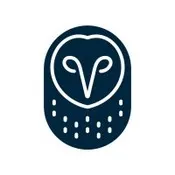Safety, Life at Samsara
IoT and how it’s transforming physical operations: Christina Dennstedt shares her views on connectivity and safety
January 15, 2025

Get the latest from Samsara
Subscribe nowChristina Dennstedt is a senior sales manager for the DACH region looking after customers in Germany, Austria and Switzerland. With a focus on the mid-market sector — which includes fleets with anything between 21 and 750 vehicles — she’s passionate about transforming physical operations through technology. In this Q&A, she shares her perspective on the power of IoT in connecting fleets and machinery, the critical role of safety in Samsara’s mission, and the virtuous cycle that links safety, efficiency, and sustainability.
What do physical operations and connected operations mean to you?
For me, it’s all about the Internet of Things (IoT) and the way it can connect physical operations. If you think about it, our bank accounts – our money – are already digitised. Our health data is digitised with readings sent via our smartwatches. And now we’re doing the same thing with trucks, lorries, vans, cars, diggers, and construction machinery.
We can connect all these things to the cloud and get data on their location and their operational health. That’s how I see physical operations and connected operations. It’s about collecting data, delivering insights, and helping customers make decisions based on it.
What’s the most important about what we do here and our technology?
I’m very passionate about safety. I really believe that with our cameras, we can avoid accidents and make German roads a little bit safer. The DACH region, as you know, has a lot of traffic. And on the autobahn, for example, there’s no speed limit for cars. As a result, sometimes it can get ‘a little wild’ – and truck drivers especially are often at a disadvantage because they have larger, slower vehicles.
So, if we can help them protect themselves with our technology, that’s something that is really powerful.
But that’s just the start. Think about it. If your teams drive more safely because of cameras with built-in artificial intelligence (AI) that provide real-time hints, nudges, and warnings, then drivers are more likely to slow down…more likely not to tailgate the vehicle in front…more likely to concentrate on the road ahead.
Something as simple as an in-cab alert can be a real game-changer when it comes to reminding drivers to buckle up or put down their mobile phones.
So, safety is an important part of Samsara’s solution.
Yes, it is. Safety – along with efficiency and sustainability – make up the three central pillars of our mission to transform physical operations. But although these pillars stand alone, they are also intrinsically linked.
For instance, you may decide to address safety in your organisation. As a result, this may lead to a change in driver behaviour – less speeding, harsh braking or erratic driving, for example. But one of the consequences of driving more safely is that you’re probably going to drive more economically, which means you save fuel. And driving more sensibly means less wear and tear on vehicles, which, in turn, could lead to savings in terms of maintenance.
Whichever way you look at it, addressing any of our three pillars invariably has a positive knock-on effect on the others. It’s a virtuous circle of safety, efficiency, and sustainability.
Have you an example where this has happened?
Yes. Arte Logistik is a logistics company based in Germany. They came to us because they wanted to save money on fuel. Thanks to Samsara’s platform, they managed to save around €92,800 in fuel costs per year. But the story doesn’t end there. They also saw a 50% decrease in safety events even though they increased their fleet size by 15%. And fewer accidents means they’re able to reduce their claims rate, which in turn cuts costs. It just goes to show how everything is linked.
Can you share some customer stories that highlight the importance of their work and the work we do?
Oh yes, I have one that comes to mind. One of our customers posted a picture on LinkedIn of their transporter that had been damaged. The front end was all smashed in. People just assumed the driver had driven into something – that it was their driver’s fault.
But a week later, our customer posted the video from Samsara’s camera. It showed a truck in front had backed into the transporter, pushed it backwards for a few metres, and crumpled the front of the vehicle.
Thanks to the camera, our customer was able to prove that their driver wasn’t at fault. It saved them a lot of trouble with the insurance company. It ensured the driver wasn’t wrongly accused or charged. And it ensured that our customer’s reputation was not tarnished by a falsehood. This just shows how our technology solves problems and avoids headaches.
What have you learned about the physical operations world since joining Samsara?
For me, it’s the importance of physical operations in our lives. Whether we recognise it or not, we simply could not exist without the people who stock our supermarkets every day, deliver our parcels, and keep the lights on. If I’m honest, I probably underestimated how big and essential the world of physical operations really is.
During COVID, though, it became clear that no matter what happens in the world, physical operations have to keep going. If they stop, everything stops. It’s a crucial industry that keeps everything running. And if I can help it be safer, more efficient, and more sustainable, then I will have done my bit to keep the world turning.
Get the latest from Samsara
Subscribe now
















